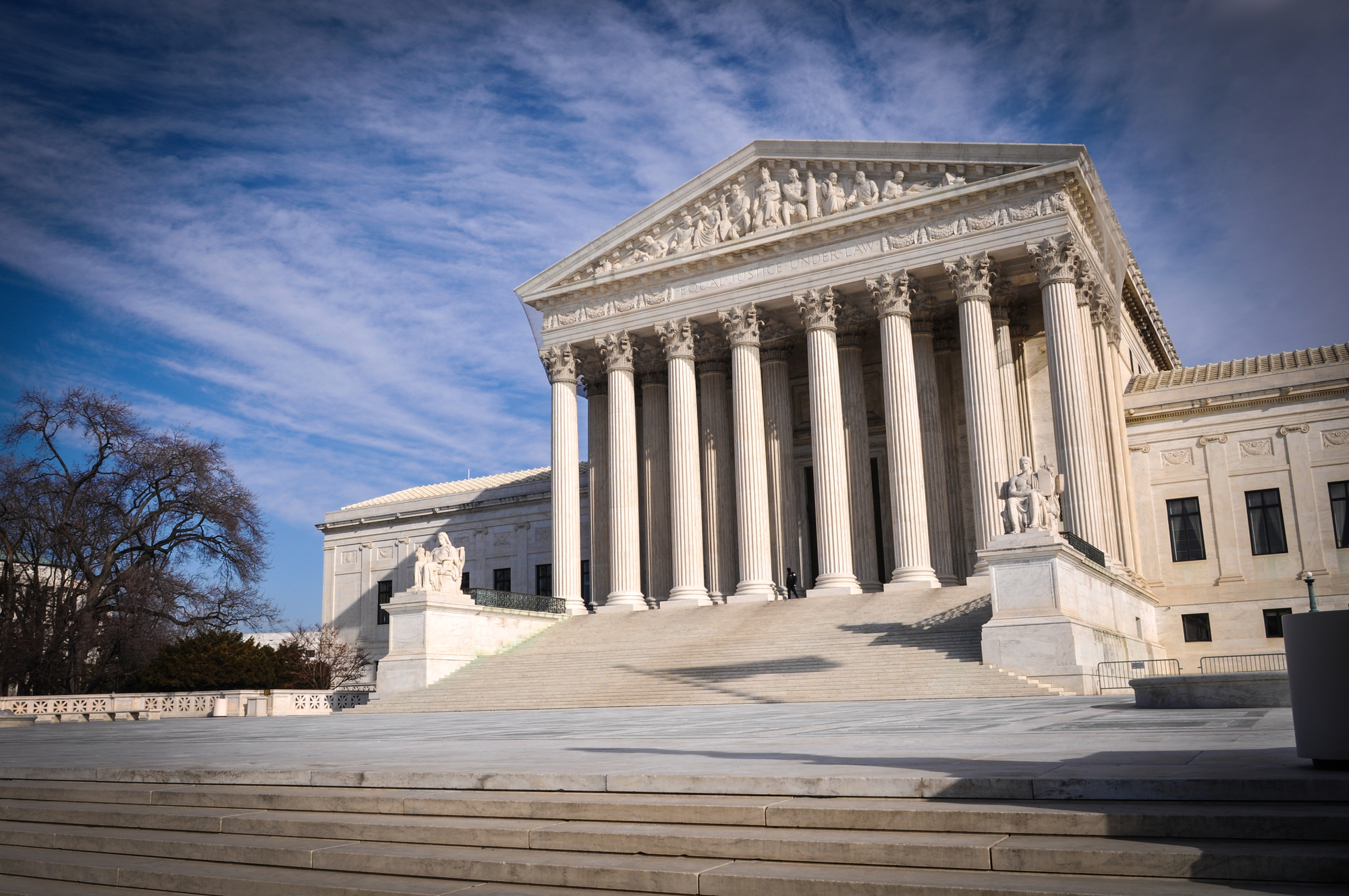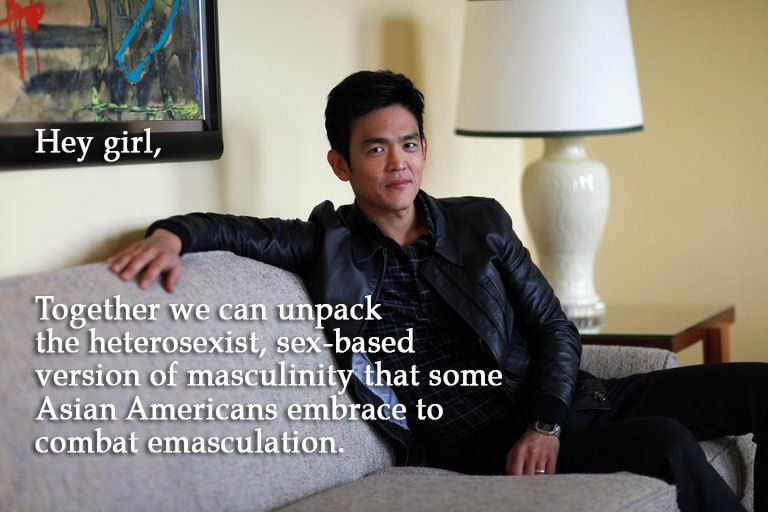
Dear John,
You don’t know me, but I’ve been with you since the very beginning.
I was organizing on-campus screenings when Justin Lin made Better Luck Tomorrow on nothing more than some shoestrings, a little spit, and a handful of maxed out credit cards. I shelled out my movie ticket money for American Pie and Harold and Kumar Go To White Castle, and even gritted my teeth through the (many, many, shitty) sequels despite my being the polar opposite of these film franchises’ target demographics. I was there for you in Flashforward and Sleepy Hollow and Selfie. I have supported you for over a decade as an immensely talented actor and one of Asian America’s break-out stars, and no one was more thrilled than I when you landed the part of Sulu in J. J. Abrams’ reboot of the Star Trek franchise; few actors deserved the opportunity more.
Asian American actors are a special bunch: to a person, you all seem to be thoughtful, reasoned, caring and politically conscious activist-actors who are deeply knowledgeable about mainstream media’s (under/mis)representation when it comes to people of colour. Perhaps it comes from the years during which you are forced to toil in acting obscurity as one of the industry’s few Asian American actors or directors, but when at last you get your “big break”, most of you use your newfound platforms to force a conversation on media diversity and better representation. I experience a moment of joyful anticipation every time I stumble across an interview with an Asian American actor, because — whether BD Wong, or Constance Wu, or Daniel Dae Kim, or Daniel Henney, or Aziz Ansari, or you — you use your respective spotlights to force a necessary conversation about Hollywood’s diversity holes. And, you all always have really great and thought-provoking things to say.
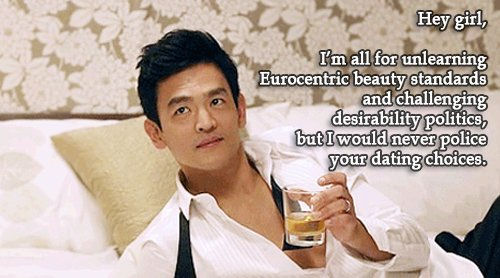
I love and respect each and every one of you not just for your talents in front of the camera, but also how you all seem to have a carefully considered outlook on race, gender, and identity away from it. None of you are content to just say some lines and collect a cheque: instead, each of you willfully and enthusiastically embraces a self-imposed responsibility as an actor to confront and challenge Hollywood’s enduring stereotypes of Asian American men and women. You understand that these stereotypes damage the self-esteem and self-identity of our Asian American youth.
Much has been written about the Asian American “rep sweats” — that nervous angst that leaves every Asian American actor with the monumental, nigh impossible task of representing a whole race with each role. I feel the “rep sweats” when it comes not to Asian American actors’ work in front of the cameras, but when it comes to your work off-screen.
Moreover, among our community’s acting titans, you, John, have always held my respect in particular, because I have heard that in private you are also an incredibly generous, humble, and kind person, and I therefore believe that you specifically deserve your current mainstream success and accolades all that much more. And sure, I’ll confess that I hold all of you to pretty high standards when it comes to identity politics; that’s because you very rarely ever disappoint.
For the most part, John, your feature interview with E. Alex Jung for Vulture this week was no exception. In a fantastic and nuanced conversation, you delved into structures of racism that disadvantage actors of colour. I loved your insight into how even the way that we light non-White actors contributes to their careless dehumanization and on-screen flattening. You are a damned smart man, John.
And so, it was with profound disappointment that I came across this excerpt in that interview:
Particularly Asian men, I feel, we suffer more than Asian women, because we’re told we’re not worth anything in general.
I can’t even begin to say how disappointing this passage was to me.
When you say that you believe that Asian men “suffer more than Asian women,” you disappointingly overlook all the evidence to the contrary — so much so, John, that I don’t even know where to start. Asian American women make less than 80 cents to the dollar an Asian American man makes. In STEM and business, we remain trapped beneath a ceiling made simultaneously of both glass and bamboo. We experience workplace bias and we are more likely than our male counterparts to work in service industries and to live below the poverty line. Asian American and Pacific Islander women comprise the largest segment of trafficked people in the United States, according to a report by NAPAWF. Our sisters, wives, mothers and daughters endure distressingly high rates of depression and suicidal thoughts. You suggest that Asian men suffer “more” because you’re told you’re “not worth anything in general.” Faced with the facts of AAPI women’s experiences with various systems of power, I must ask: does it seem as if the world treats us, AAPI women, as if we are worth anything either?
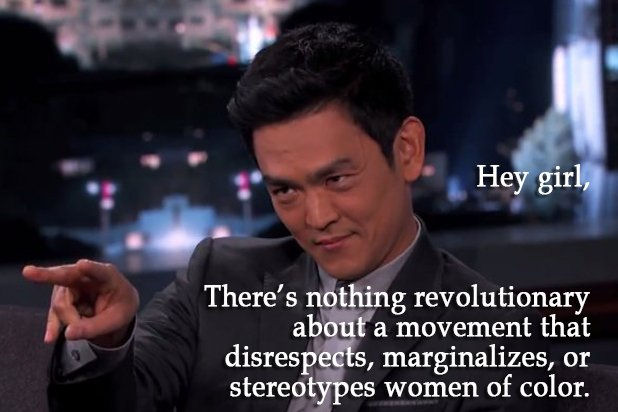
Okay, I get that you’re talking about Hollywood and its stereotypes of Asian American men and women. Yet, even in Hollywood, it’s clear that a (muted) privilege stemming from patriarchy exists for men (including men of colour) while it disadvantages women (including Asian American women). Hollywood remains a male-dominated industry, and male actors, directors, producers and screen-writers remain far more prevalent and prominent than female ones (even while male actors of colour continue to be underrepresented and misrepresented). This (by no means comprehensive) list of Asian American actors and filmmakers includes 1.5 times as many men as women, which dismantles the myth that Asian American female actors have an easier time creating fame in this industry than do men. (Update: this holds true if you exclude off-camera filmmakers from the list, and include only actors.) 3.5 times as many Asian and Asian American men have been nominated for (or won) an Academy Award in acting, directing, or screenwriting than Asian or Asian American women. In this year’s unprecedentedly diverse new Academy class, only approximately 2% of invited members are Asian or Asian American women, compared to easily two times as many Asian or Asian American men.
In qualifying your statement for Vulture with the detail that Asian American men are not viewed as “worth anything in general [by mainstream media],” you dogwhistle that you subscribe to the belief that Asian American women experience a form of privilege because we are stereotyped as sexually desirable. This is a common refrain among Asian America’s most vehement pick-up artists and men’s rights activists, who deny the existence of systemic patriarchy by insisting that the trappings of male privilege are inaccessible to Asian American men. But, how is there power for Asian American women in being stereotyped as a consumable object of sexual desire? In this, we are not humanized. We have no voice. Our characters are granted no agency. We are portrayed as valuable only for heterosexual male gratification, to be used and disposed of once consumed.
You speak, John, as if Asian American women should be grateful to be valued as a sexual caricature. You speak as if we should be happy to be deemed “worthy” of playing the role of someone else’s silent sex object — even when it is a role that we didn’t ask for, and which has been historically used to rationalize the real-world subjugation of Asian and Asian American women. You speak as if the unwanted sexual attention of men is privilege, forgetting that in the off-screen world, this kind of attention doesn’t grant women power; instead it is used to legitimize sexism, rape, assault, and occasionally murder.
The irony, of course, is that you positioned yourself as an Asian American man with less power than Asian American women while you were on a publicity tour for a movie and film franchise where you (and George Takei before you) play a highly visible and beloved Asian American male character, as one of two major supporting characters in the franchise’s many ensemble casts. Meanwhile, the Star Trek franchise has featured only one recurring Asian American female character — Linda Park’s Hoshi Sato in Enterprise — where she appeared in a series routinely criticized for relegating all its characters of colour to the place of forgettable human scenery. Even in Star Trek: Beyond — directed by one of Asian America’s best directors and co-starring one of its shining actors — you share center-stage with the show’s lead cast while the incredible Oscar-nominated Shoreh Aghdashloo is relegated to a cameo role. Heck, peruse Aghdashloo’s filmography and ask yourself this: has the film industry treated this immensely talented actor kindly? Can we really conclude that she has enjoyed some kind of privilege in this industry by virtue of her gender?
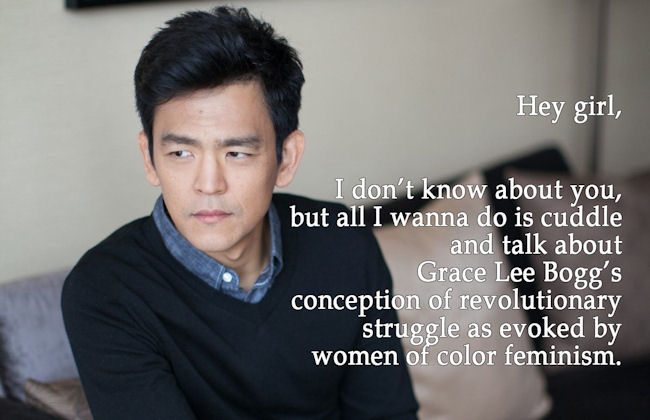
Later in that same interview with Vulture, you note the controversy over [spoiler] Star Trek: Beyond‘s casual reveal that their universe’s Sulu is a gay married man with a young daughter, which has been marketed as a nod to George Takei’s real-world activism for gay rights. You note in this interview, however, your concern that this would potentially contribute to Hollywood’s long-time “feminization” — your word — of Asian men. Really, though?
You are certainly correct that Hollywood lacks an abundance of heterosexual Asian American male characters, which contributes profoundly to the legitimate angst of straight Asian American men who continue to feel underrepresented by our media. Asian American masculinity has been historically constructed in the Western imagination as merely relational to White masculinity — defined entirely by the false stereotypes of Asian American men as lacking in markers of conventional male identity. Our men remain largely invisible as straight romantic leads and as heterosexual desirables, and that certainly must change. Hollywood’s ongoing blind-spot when it comes to a significant portion of the AAPI community cannot continue. You are correct to point out that the rebooted Star Trek universe missed an opportunity to help right that wrong.
Yet, your phrasing in this interview with regard to this issue is clumsy and unhelpful. It is yet another example of how the words we use to talk about this issue can themselves be marginalizing. Although you draw attention to an important issue with regard to Hollywood’s portrait of straight Asian American men, your choice of “feminization” also offers the damning suggestion that to be a gay man is to be some kind of a lesser man; as if masculinity must be defined primarily by the performance of male heterosexuality, and that gay men will therefore always come up short (and that, to come up short is to be deemed “feminine”). In suggesting that your Sulu has been “feminized”, you single-handedly dismiss the many gay, straight, bisexual, and trans Asian American men who legitimately define their masculinity through a progressive and non-hetero-normative framework. You marginalize the many feminists who see nothing wrong or inferior with femininity. You also assert a rigid gender binary that dismisses our community’s non-binary or genderfluid members.
Let’s be clear: there’s so much in this interview that resonates positively with me. You talk favourably about the themes of Maxine Hong Kingston’s Woman Warrior. You talk about your commendable insistence that a gay Sulu be depicted as married to an Asian person, so that the rebooted Star Trek universe positively portray a healthy gay Asian couple. I love 98% of your interview — it was the other 2% that gave me serious pause.
In the end, this isn’t — and can’t be — about playing Oppression Olympics. So long as the oppressed busy ourselves with fighting over the crown of “most oppressed”, no one but the oppressor wins. I will be the first to agree: Asian American men experience serious marginalization by Hollywood, and you are victims of inexcusable racism thanks to toxic White masculinity’s highly racialized framing. As men of colour, it is not easy to navigate this highly racist world, which would devalue you both sexually and racially. I get that. What you face as an Asian American man angers me deeply, John, and things quite simply must change.
However, the racial justice you seek, John, will not be found by turning your attention against the women and feminists in our community. We cannot dismantle the racism you face by invalidating the very real oppression and dehumanization experienced by Asian American women. It is entirely possible to lift up Asian American men without having to tear down Asian American women, gays, and non-binary people.
You have an immense platform, John, and I am so glad that you are using it to highlight the inequities you face as an Asian American male actor trying to make his way in a White supremacist industry. We need to hear from you. We want to hear from you. Please, keep talking and acting and doing all the wonderful things that you do. But, please, also, consider the many of us who are paying attention to your words. Think about the impact of what you have to say on the whole of the community, and not just their impact on those of us who most resemble you. We, Asian American women and feminists, have been there for you since the very beginning, supporting you and your work; all we ask is that you do the same — or, at the very least, to not step upon us as you climb.
I’m not angry at you, John. In fact, I believe that what you said was not intentionally hurtful or damaging. I sincerely believe you would describe yourself as a feminist. I guess the best word to describe how I feel right now is this: heart-broken.
Your voice is so important for us, John. With all the incredible things you said in your Vulture interview this week as you were critically uplifting straight Asian American men, I wish you hadn’t also used that time to also do the patriarchy’s work of invalidating feminism and gay masculinity. It’s true: we haven’t seen everything you can do, John; and when it comes to using your fame to support Asian American feminists and LGBT activists, I can’t wait to see you do something more and something better.
With love and deep respect,
Jenn
PS – You were incredible and stole the show in Star Trek: Beyond.
PPS – All memes in this post are courtesy of the hashtag #FeministJohnCho, which I had nothing to do with the creation of.

